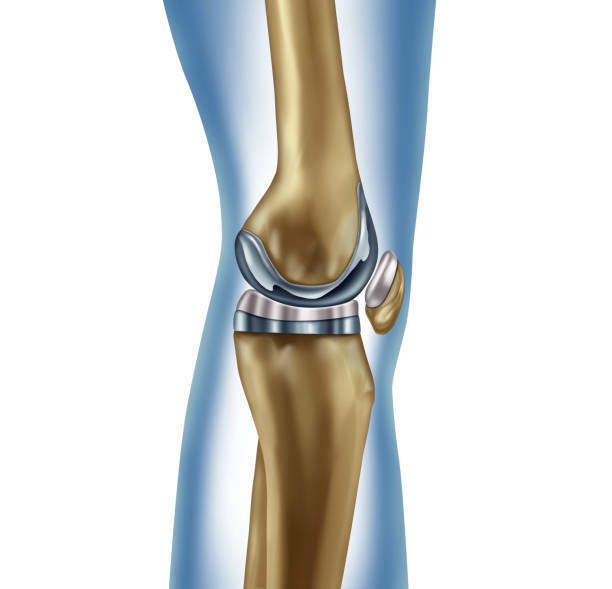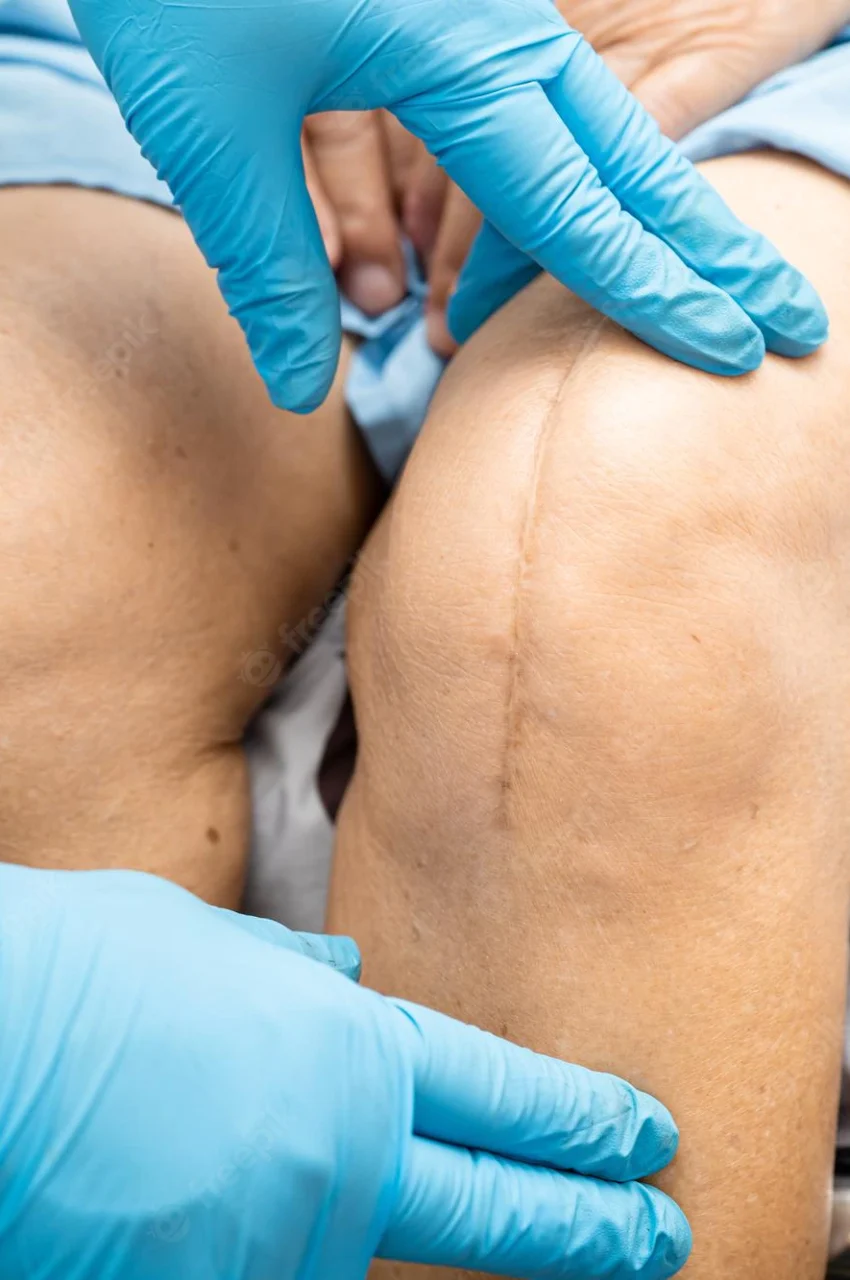Advanced Knee Replacement Treatment
Knee Replacement
What is Knee Replacement?
There are several types of arthritis which can affect the joints of the knee. Some of the most common ones are osteoarthritis, traumatic arthritis, and rheumatoid arthritis. Osteoarthritis is a degenerative joint disease affecting middle-aged or older people. The condition can cause the breakdown of the cartilage in joints,making the knee joint weaker. Rheumatoid arthritis, on the other hand,causes inflammation of the synovial membranes in joints and can leads to excessive fluid buildup, which in turn causes stiffness and pain. Lastly, the reason behind traumatic arthritis is a major injury to the knee and can severely damage the knee cartilage, which may give rise to the need for a joint replacement.
Before recommending knee replacement surgery, your doctor will try to use conservative approaches for your treatment. In case such methods fail to show results, surgical treatments will be considered. To determine whether you are a viable candidate for knee replacement surgery, some physical tests and scans are done. Moreover, the surgical technique also depends upon factors like your body weight, activity, size, and shape of the knee, and overall health."
Types of Disease
Unicompartmental or Partial Knee Replacement
When do you need a Knee replacement?
Medication, including strong anti-inflammatory drugs, are not easing your pain.
Less invasive treatment options like cortisone injections, lubricating injections, and physical therapy have been ineffective in reducing pain and inflammation.
You face severe difficulty and pain while performing even simple everyday tasks like bathing, getting out of bed, climbing the stairs, walking, etc.
You have started experiencing pain even when your knee is stationary while you’re sitting or lying down.
The knee has visible deformation
You are in the age category of 50 to 80 years old. Most people in this age group require knee replacement surgery as conservative treatments may be ineffective for them. However, it should be noted that age is not necessarily a deciding factor for a total knee replacement surgery.
Diagnosis
Treatment for pain and discomfort in the knees begins with conservative methods like physiotherapy, anti-inflammatory drugs, and cortisone injections. If you have not seen any results even after a significant amount of time and are still experiencing pain while doing simple activities or when you’re at rest, you may require knee replacement surgery. Other symptoms may include stiffness, inflammation, and swelling of the joint.




Potential risks and complications associated with knee replacement
Deep vein thrombosis
Pulmonary embolism
Infections
A fracture after or during the surgery
Bleeding in the joint during or post-surgery
Instability of the knee cap leading to dislocation
Nerve damage leading to numbness or weakness
Ligament or artery damage
Pain and stiffness post-surgery
An allergic reaction to bone cement
Excess bone formation around the knee implant, leading to loss of movement
Excess scar tissue buildup
Wearing down of implant
The patient must be on the lookout for any signs of post-surgery complications. Swelling, bleeding, and redness around the site of operation, and fever may be signs of an infection. Tenderness, redness, and swelling below the knee, or in the calf or foot may be indicative of a blood clot in the leg or deep vein thrombosis, while shortness of breath and pain in the chest after surgery can indicate of pulmonary embolism or blood clot in the lungs.
If the patient suspects the presence of any of the above-given complications, he should seek immediate medical attention. "
Cost
How much does a total knee replacement surgery cost?
Total knee replacement surgery or TKR can cost somewhere between INR 3,20,000 to INR 4,50,000. This cost bracket is only for reference and is not a fixed cost. Factors like the type of implant used, surgical techniques, the fee of hospital and surgeon along with some other things influence the cost of knee replacement surgery.
How much does a partial knee replacement surgery cost ?
A partial knee replacement can range from INR 1,80,000 to INR 2,50,000. If you undergo surgery for both knees, the cost of surgery will go up. Other than that, factors like the general fees of the hospital and surgeon, type of implant, and the technique used for the surgery are some of the major factors that will influence the cost of partial knee replacement surgery.
Insurance coverage for knee replacement surgery
Most insurance companies cover the cost of partial and total knee replacement surgeries. But the exact amount of coverage depends on your health insurance policy. To know the details, it is best that you talk to your insurance provider to discuss the insurance coverage of our surgery.
